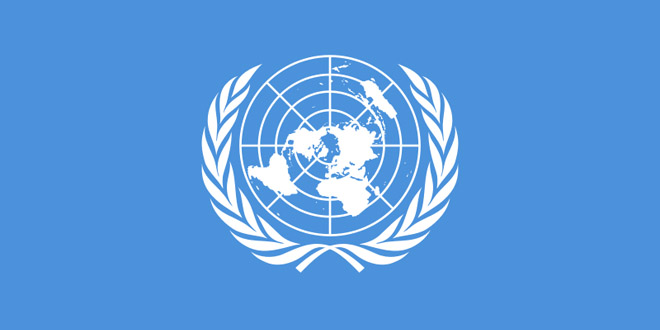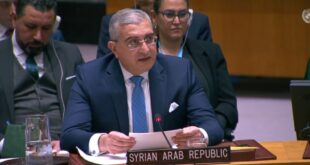Damascus, SANA – The Intercept website published a leaked UN report which reveals that the US and European sanctions are punishing Syrians and crippling aid work in Syria.
The site said that the sanctions and the crisis in Syria have destabilized every sector of Syrian economy, transforming a once self-sufficient country into an aid-dependent nation, noting that aid has become hard to come by due to sanctions blocking access to equipment, medicines, medical devices, food, fuel, water pumps, spare parts for power plants, and more.
The site said that the UN’s 40-page internal assessment, which was commissioned to analyze the humanitarian impact of the sanctions, describes the US and EU measures as “some of the most complicated and far-reaching sanctions regimes ever imposed,” detailing a complex system of “unpredictable and time-consuming” financial restrictions and licensing requirements.
The report said US sanctions on Syrian banks have made the transfer of funds into the country nearly impossible; even when a transaction is legal, banks are reluctant to process funds related to Syria for risk of incurring violation fees, and this has given rise to an unofficial and unregulated network of money exchanges that lacks transparency, making it easier for extremist groups like ISIS and al Qaeda to divert funds undetected, while at the same time the difficulty of transferring money is also preventing aid groups from paying local staff and suppliers, which has delayed or prevented the delivery of development assistance.
The report also pointed out that trade restrictions on Syria are even more convoluted, as items that contain 10 percent or more of US content, including medical devices, are banned from export to Syria.
Syria was first subjected to sanctions in 1979, after the U.S. designated the Syrian government as a “state sponsor of terrorism”. More sanctions were added in subsequent years, though none more extreme than the restrictions imposed in 2011 in response to the Syrian government’s crackdown on terrorists.
In the same context, the site said that an internal UN email also faults the US and EU sanctions for contributing to food shortages and deteriorations in health care, as this August email from a key UN official warned that sanctions had contributed to a doubling in fuel prices and causing the price of food items to soar, citing sanctions as a “principal factor” in the erosion of Syria’s health care system, as medicine-producing factories that haven’t been completely destroyed have been forced to close because of sanctions-related restrictions on raw materials and foreign currency.
The site also criticized the US for employing some of the same tactics it condemns, such as shelling the city of Manbej in northern Syria that is home to tens of thousands of civilians, killing up to 125 civilians in a single attack.
Hazem Sabbagh
 Syrian Arab News Agency S A N A
Syrian Arab News Agency S A N A




